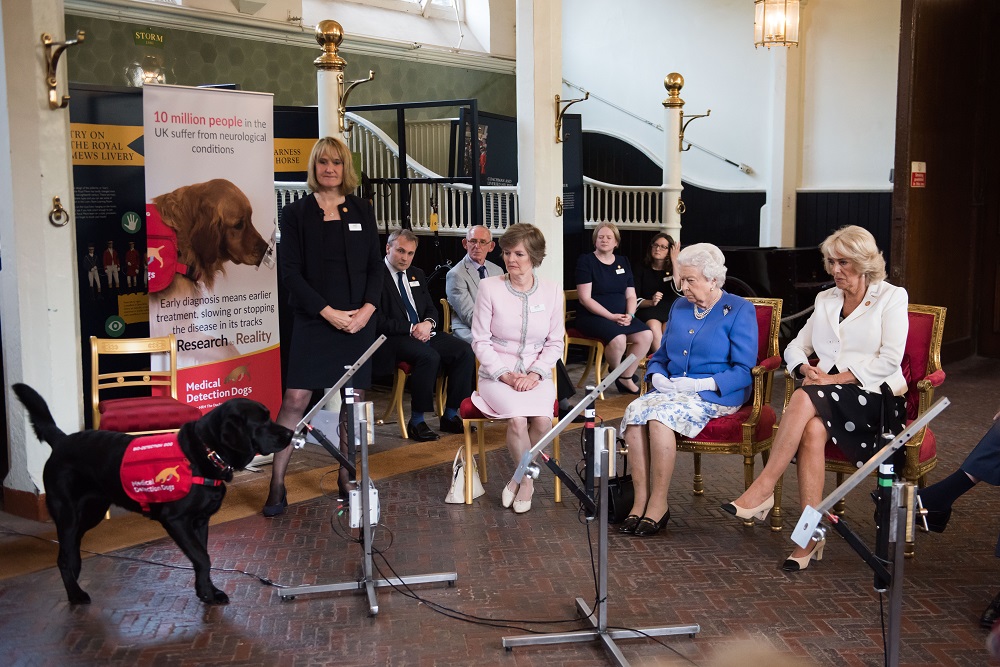OU News
News from The Open University
- Home
- Scientist, and dogs who “sniff for cancer”, meet Her Majesty The Queen
Scientist, and dogs who “sniff for cancer”, meet Her Majesty The Queen
Posted on • Computing

A group of incredible dogs who detect cancer cells in biological samples accompanied one of the leading animal-computer interaction scientists to meet Her Majesty Queen Elizabeth II at Buckingham Palace.
Head of The Open University Animal-Computer Interaction Lab and Senior Lecturer in Computing and Communications, Dr Clara Mancini, was invited to Buckingham Palace to celebrate the 10th anniversary of the charity Medical Detection Dogs.
Screening body fluids for disease: the signaling challenge
Dr Mancini has been collaborating with the charity since 2013, when she began researching ways to support the work of dogs who can detect the odour of cancer and other diseases from volatile compounds in body fluids, such as urine, sweat or breath.
During this time, Dr Mancini learnt how the conventional signals taught by humans to dogs to alert them to the presence of volatiles in a sample, such as sitting down in front of a ‘positive’ sample, limited the potential of the dogs’ work; Dr Mancini said:
“These conventional signals clarify the dogs’ decision for human convenience, but limit their ability to provide information on what they find.
“Firstly, these conventions only enable dogs to express binary responses, while differences between samples may be more nuanced, possibly indicating different stages of disease. Secondly, these signals are not consistent with how dogs spontaneously respond to odours of interest, adding a ‘translation overhead’ to their already cognitively demanding work and interfering with their performance.”
Addressing the challenge: a new canine computer interface
Exploring new approaches, Dr Mancini and her technical team developed a canine computer interface, which uses sensor technology to capture the sniffing behaviour of the dogs as they investigate the samples, revealing interaction patterns that correlate with the samples’ content.
Eliminating human bias
The research will now be developed further, and Dr Mancini and her team will use machine-learning techniques to classify these patterns automatically in real time, so that the system itself can reward the dogs when they are correct. The researchers are currently running a trial with Medical Detection Dogs to gather data for the development of learning algorithms that can automatically interpret the data.
“Ultimately, this work will contribute towards ongoing efforts to develop ‘artificial noses’ that can do the tests and that can be widely deployed,” said Dr Mancini.